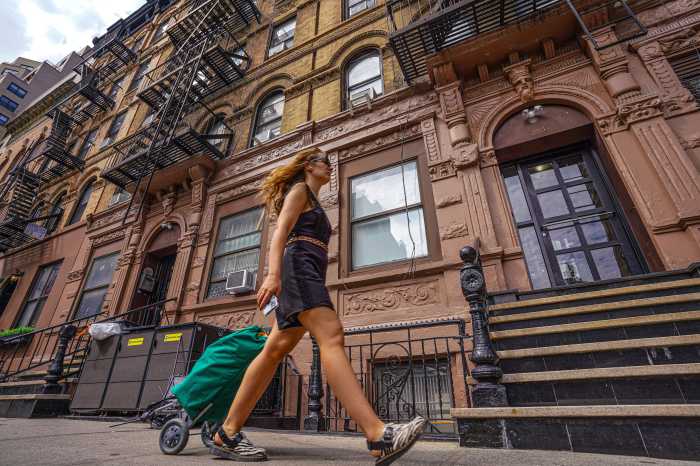
The Rent Guidelines Board made history Monday night by voting to freeze rents on one-year leases while approving a 2% hike on two-year leases for the city’s roughly one million rent stabilized units at a contentious meeting that left tenants and their supporters cheering at Cooper Union’s Great Hall.
The Rent Justice Coalition, a group including tenants and elected officials, praised the board’s 7-2 decision in a statement, saying it was “the first rent freeze in their 46-year history,” and one that will ease the lot of millions of rent-pressed New Yorkers.
The new guidelines affect renters with new leases and lease renewals as of Oct. 1.
“The data supports a rent rollback, but we don’t have the votes to make that happen tonight. So I am proposing the best option,” said board member Sheila Garcia, who supported the proposal that passed.
Aaron Sirulnick, chair of the Rent Stabilization Association, which represents landlords, said the freeze will ultimately hurt tenants, making it more difficult for owners to invest in and maintain their buildings.
“The decision represents the board’s intention to send a message,” Sirulnick said.
Mayor Bill de Blasio issued a statement applauding the Board “for making tonight’s decision based on hard data, including the unprecedented 21 percent drop in fuel costs over this past year. We know tenants have been forced to make painful choices that pitted ever-rising rent against necessities like groceries, child care and medical bills.”
All of the board’s members were appointed by de Blasio.
The decision was “the right call,” de Blasio said, vowing that his administration would work to prevent tenant harassment and displacement while working with landlords to help them lower their costs.
He was joined by many other politicians in praising the freeze, including Council Member Helen Rosenthal, who said it “marks a huge victory for rent-regulated tenants, who have long suffered from rent increases that were both out of sync with actual costs incurred by landlords and increasingly beyond tenants’ capacity to pay.”
The annual meeting is always raucous, but concerns about inequality have reached a fever pitch of late.
A study released by the NYC Housing, Preservation & Development in February determined that 56% of New York renters are “rent burdened,” with rent and utilities gobble more than one-third of their incomes.
But Patrick Siconolfi, executive director of the Community Housing Improvement Program, a group that represents owners who control about 350,000 rent stabilized units, said in a statement his organization would prefer that needy tenants be given rent subsidies. “As the gap between controlled rents and true market rents continues to rise, the majority of New Yorkers who don’t live in rent-stablized apartments will have to pay more in their rent and taxes,” to subsidize those in stabilized units, he said.
Many tenants were elated. Susi Schropp, who has lived in the East Village with her brother for 26 years said the freeze was “much needed” as she already pays 35% of income on rent. “This is a vote for the working people,” she said.





































